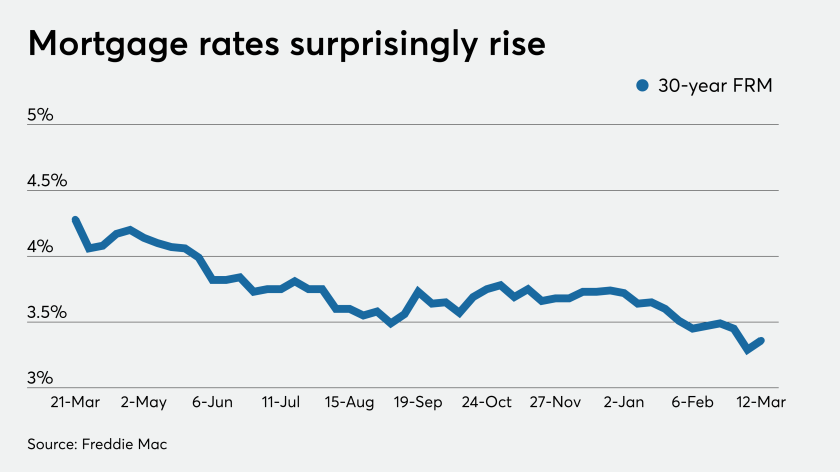Lenders initially won't be able to pass on the cost of the Federal Housing Finance Agency's "adverse market fee" to borrowers whose rates on GSE-backed mortgages and refinances are already locked in.
Mortgage technology efforts have historically been behind the curve, but some recent responses to the coronavirus highlight instances where it rises to the occasion.
Residential estate brokers and agents are scrambling to determine what Massachusetts Gov. Charlie Baker's emergency order means for their industry.
There was a nearly 30% week-to-week decline in loan applications as Americans reacted to the uncertainty, both economic and medical, from the spread of COVID-19, according to the Mortgage Bankers Association.
While the mortgage market began the year healthy, lenders and borrowers need to prepare for the impacts of the coming coronavirus recession.
With small businesses feeling the financial scourge of the coronavirus, bridge loans could be the direction they turn to keep things afloat.
Electronic closings are a solution in efforts to limit people congregating, but there could be some state law concerns.
Increased refinancing volume led Fannie Mae to raise its 2020 estimate by $300 billion and 2021 projection by $280 billion.
Companies in the mortgage business were already focused on processing a lot of loans and generating efficiencies before the latest uptick in business hit.
Paradoxically, mortgage rates actually increased this past week, even as the 10-year Treasury yield plumbed new depths, likely because lenders are too busy to handle the influx of applications.















